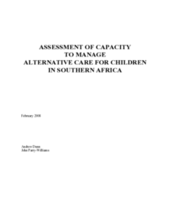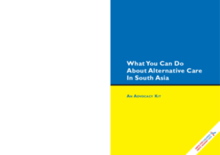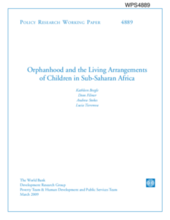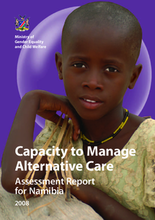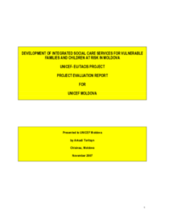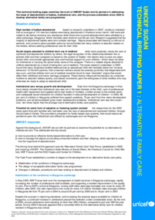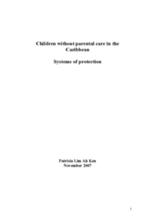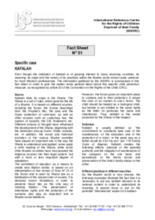Displaying 561 - 570 of 608
This report, prepared for UNICEF East and Southern Africa Regional Office (ESARO) assesses capacity of Malawi, South Africa, Swaziland and Zambia to manage alternative care systems for children.
Provides insight into the situation of children outside parental care in South Asia, gaps in legislation, capacity, and services, with reference to national and international legal instruments.
Using household survey data from 21 countries in Africa, this study examines trends in orphanhood and living arrangements, and the links between the two.
Examines the outcomes of family strengthening model in Uganda.
This report prepared for the Ministry of Gender Equality and Child Welfare (MGECW) with financial support from UNICEF Namibia assesses the country’s capacity to manage alternative care systems for children.
Project Evaluation Report for UNICEF Moldova
Analyzes the care of children without parents in the contexts of current theoretical and policy formations and attachment theory with kin and non-kin caregivers.
Examines the work of UNICEF Sudan and its partners in addressing the issue of abandonment of babies, institutional care, and the process undertaken since 2003 to develop alternative family care programmes.
A regional assessment of responses to children outside parental care in the Caribbean. Extensive research on successful examples of alternative care. Includes recommendations and lessons learned.
Information gathered by the ISS/IRC on the Muslim practice of Kafalah, which serves as a form of long-term fostering and de-facto adoption.

